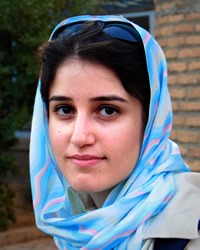Persian in United States

Photo Source:
Hamed Saber - Flickr
Creative Commons
|
Send Joshua Project a map of this people group.
|
| People Name: | Persian |
| Country: | United States |
| 10/40 Window: | No |
| Population: | 331,000 |
| World Population: | 48,380,900 |
| Primary Language: | Persian, Iranian |
| Primary Religion: | Islam |
| Christian Adherents: | 2.00 % |
| Evangelicals: | 0.30 % |
| Scripture: | Complete Bible |
| Ministry Resources: | Yes |
| Jesus Film: | Yes |
| Audio Recordings: | Yes |
| People Cluster: | Persian |
| Affinity Bloc: | Persian-Median |
| Progress Level: |
|
Introduction / History
By definition, Persians (also known as Iranians) are an ethnic group native to Iran. The Persian language, called Farsi, is part of the Indo-Iranian language family, and is the official language of Iran. Dari, the language of the elite in Afghanistan, is a dialect of modern Persian. Around 1000 B. C., Persian groups began to settle in the territory that is now Iran. Loosely associated Persian tribes became a more cohesive political unit under the Achaemenian dynasty. Their unity soon made them the dominant ethnic group in the region. For 1,200 years, Persia maintained a culture that became increasingly more complex and rigid. This laid the foundation for a successful Arabian conquest in the seventh century A. D. It was not until the Islamic revolution of 1979 that massive changes came both to Iran and to the Persian people. Many speak English in their families while others still speak Farsi.
Where Are they Located?
Although the vast majority of Persians now live either in Iran or in one of the nearby Middle Eastern countries, small Persian communities can also be found in many other nations around the world including the US, where they are among the newer Muslim communities.
What Are Their Lives Like?
Whether in suburban comfort or an overcrowded low-income apartment, the Iranians of North America are joined together by the Farsi language, the Shia Muslim faith that provides little certainty, and a longing to belong to a community. The older immigrants who came in the 1980s usually hold advanced degrees and have established their professions. Newer Iranian immigrants are starting over, often in low-paying jobs that don't require a high level of English language skills. Iranians in the U. S. are often politically active, but their activity is often about seeing reforms in Iran. For this reason, the powers that be in Iran feel threatened by them.
What Are Their Beliefs?
Prior to the Arab invasions, the Persian religion was Zoroastrianism. This religion taught that there was an eternal struggle between the forces of good and evil. Shia Islam became the national religion of Iran in the sixteenth century, at which time the ulama (clergy) began playing an important role in both the social and political lives of the people. Today, most Iranians are officially Shia Muslims of the Ithna Ashari branch. However, the Iranians who have migrated to the United States are usually disillusioned with state-enforced spirituality, especially in light of the hypocrisy which they saw in the Iranian government. For this reason, most are either Shia Muslim in name only or they are secularized. Fortunately, being in a place where there is freedom of religion gives them a chance to hear and respond to the claims of Jesus Christ. The main obstacle is a lack of workers. There are many Iranian followers of Christ in the U. S. and they can reach those who are still lost in secularism or Shia Islam.
What Are Their Needs?
Iranians in the U. S. need to know there is hope—not in a religious institution, but in the only Savior, Jesus Christ. It will take loving and patient ambassadors for Christ to go to them. There is a need for more workers who will go with the love of Christ.
Prayer Points
Pray for a Disciple Making Movement to flourish among Iranians all across North America. Pray that Iranian Muslims would become disillusioned with the emptiness of worldly success and become captivated by the love and forgiveness found only in Christ. Pray that many Iranian believers in the US will gladly share their faith in the Savior with them. Pray that the desire for close relationships will prompt these Iranians to seek and find Jesus.